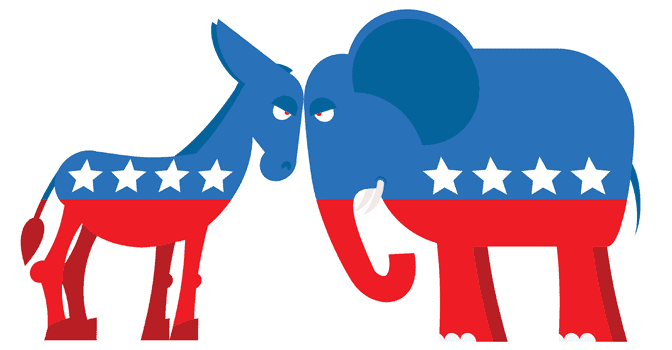What Have American Muslims Gained From Support Of The Two Major Political Parties?
In the mosaic of American politics, few groups have faced as complex a dilemma as Muslim Americans. Caught between competing narratives and often vilified or overlooked, Muslim Americans have steadily become an increasingly more important part of the electorate. Yet, after years of political engagement, one crucial question remains: what tangible benefits have Muslim Americans gained from their support for either the Republican or Democratic parties?
For decades, the Republican Party has branded itself as the party of traditional values, strong national defense, and fiscal responsibility. Many of these principles align with the cultural and religious values of the Muslim community. During the early 2000s, some Muslim Americans gravitated toward the GOP, drawn by its emphasis on family values and small government. With the social backdrop of moral decay in American society, many saw this as the best available option.
However, this tentative alliance was profoundly shaken after 9/11. The subsequent “War on Terror” ushered in an era of policies such as the Patriot Act, increased surveillance, and invasive airport screenings, which disproportionately targeted Muslims. Later, the Trump administration’s “Muslim Ban” and its openly racist rhetoric and overtures to white supremacist groups further alienated Muslim Americans, cementing a perception of the Republican Party as hostile to our community, which is heavily populated by those who are identified as racial minorities in the US. While some Muslim Americans continue to support the GOP for economic or social reasons, it’s hard to ignore the party’s role in fostering Islamophobic rhetoric and policies.
On the other side of the aisle, Democrats have positioned themselves as the champions of diversity and inclusion. Prominent Muslim American politicians, such as Representatives Ilhan Omar and Rashida Tlaib, have risen through the ranks of the Democratic Party, symbolizing hope for greater representation.
Yet, symbols alone do not guarantee substantive change. Under Democratic administrations, key issues for Muslim Americans, including foreign policy in the Middle East, domestic surveillance, and hate crimes, have often gone unaddressed or worsened, for instance, the Biden administration’s continued funding and arming of the ongoing genocide in Palestine, as well as actively supporting groups that undermine peace and security in Muslim majority nations the world over. Many Muslim Americans feel that while the Democratic Party courts their votes with inclusive rhetoric, it often falls short of delivering meaningful policy changes that directly benefit our community. Indeed, much publicity surrounded the failed presidential campaign of Kamala Harris snubbing and silencing Muslim voices from within her own party, prompting some Muslim leaders to endorse her openly Islamophobic opponent.
As Muslim Americans continue to navigate their political identities, the question arises: are either party’s promises enough? The current landscape suggests that neither Democrats nor Republicans have adequately addressed the unique challenges faced by the Muslim community. Beyond superficial gestures and token representation, tangible policy changes, ranging from combating Islamophobia to reforming foreign policy, remain elusive.
This is not to suggest that Muslim Americans should disengage from politics. We must not allow the looming administration of yet another Islamophobe who promises ever worse treatment of Muslims to be hallmarks of his second term to dampen our resolve to affect positive change in our country. On the contrary, this should spur us to greater action. The principles of good governance inherent in the Islamic code are values from which the country can undoubtedly benefit. The question for Muslims is whether or not we should continue to align ourelves with parties that offer two servings of inhumanity with every serving of decency. Simply put, choosing the lesser of two evils must not be our only option.
Ultimately, the onus lies with Muslim Americans to critically reevaluate their political allegiances, and consequently their power within the structure. Both major parties have courted their votes but have fallen well short of delivering substantive benefits. It’s time to ask: what has been gained, and at what cost? By focusing more effort on developing platforms on which governance can be conducted without hypocrisy and with adherence to the country’s founding principles, Muslim Americans can chart a course toward a more equitable and impactful political future. Our current, up-and-coming, and future generations must engage more directly in the political processes by establishing our own political party and Muslim-run think tanks, thereby putting forward and electing more candidates with similar interests and goals for office at all levels of government to ensure that our political energies are no longer wasted on those who truly care little for our concerns.
By Qaasim Wasi

